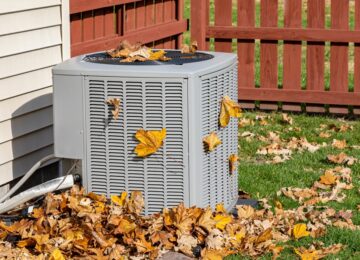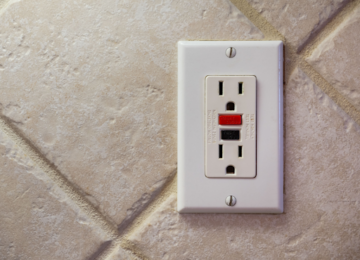The kitchen contains some of the highest energy-consuming elements in your household. Discover our 5 ‘Handy’ tips to continue making great meals while saving some bucks.
 #1 Stove
#1 Stove
Old stoves don’t always have the greatest seals to keep the heat in. This not only leads to unevenly baked cookies, but also results in energy wastage—your oven expends more energy to compensate for the heat loss, and during warmer months, your air conditioning has to work harder to maintain a cool environment. Upgrading to a new seal, door, or an energy-efficient oven could be a worthwhile investment.
Keep in mind that opening the stove door causes up to 25% of the heat to escape. Opting for a transparent oven door equipped with an interior light can aid in cost savings. Additionally, consider preparing multiple dishes simultaneously. If the required temperatures align, cooking your casserole alongside your buns can minimize the operational time of your oven.
#2 Fridge
In addition to making the switch to an energy-efficient refrigerator, there are a few things you can do to reduce the power you use. Firstly, be mindful of not leaving the fridge door open for extended periods. It’s not an efficient air conditioner by any means! Familiarize yourself with the fridge’s contents and decide what you’d like to retrieve before opening the door. Take a picture of the contents if you need help remembering.
Also, when placing leftovers in the fridge, allow them to cool naturally outside before transferring them. This approach prevents your refrigerator from shouldering the entire cooling burden immediately. Introducing hot dishes into the fridge forces the appliance to exert excessive effort, ultimately increasing your expenses and shortening its lifespan.
#3 Freezer
To optimize the performance of your freezer, consider periodically clearing out its contents (a perfect excuse for an ice cream feast!) and let the ice that accumulates on the sides defrost and clear. Thicker ice layers within the freezer force it to operate with greater effort, impeding efficiency. Likewise, be cautious not to overwhelm your freezer with an excess of items. The more there is, the harder it must work.
#4 Dishwasher
Mastering the art of loading your dishwasher not only enhances the cleanliness of your dishes but also reduces energy costs and prolongs the lifespan of your appliance. Additionally, consider deactivating the heat drying feature. Instead, allow your dishes to air dry after the hot water rinses, or gently towel-dry them before stowing them away.
#5 Lights
When addressing the lighting within your kitchen, consider incorporating multiple options tailored for the different surfaces and work zones. Implementing dedicated lighting above the sink, across the table or breakfast bar, and along various counter spaces can effectively reduce expenses by eliminating the need to illuminate the entire kitchen. Make sure you are using low-energy lightbulbs!
![How to Efficiently Use The Devices In Your Kitchen The kitchen contains some of the highest energy-consuming elements in your household. Discover our 5 ‘Handy’ tips to continue making great meals while saving some bucks. #1 Stove Old stoves don’t always have the greatest seals to keep the heat in. This not only leads to unevenly baked cookies, but also results in energy wastage—your […]](https://handysideinc.com/wp-content/uploads/2023/08/How-to-Efficiently-Use-The-Devices-In-Your-Kitchen-750x420.jpg)





